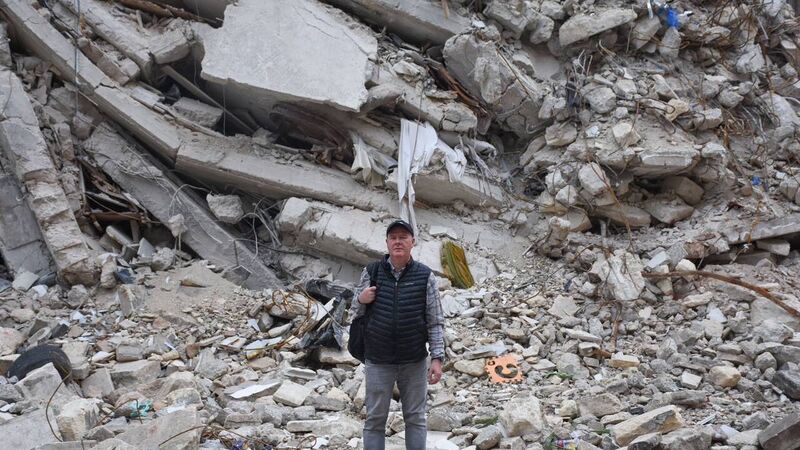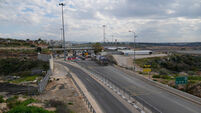‘Aleppo is still hell’, says Co Cork priest one year after devastating quake

Cork native, Fr Tony O’Riordan, who is Director of the Jesuit Refugee Service (JRS) in Aleppo, Syria, stands dwarfed by the rubble caused by the earthquake that struck the city last year which killed almost 60,000 people between Syria and Turkey. Pictures: Tony O’Riordan/JRS
Dwarfed by a pyramid of rubble in front of him, Fr Tony O’Riordan pauses to think about the men, women, and children who died as they and the block of apartments they were living in suddenly cascaded to the ground like a waterfall of concrete, flesh and bone.
The scars and turmoil left by the earthquake that engulfed Aleppo this time last year, on February 6, killing tens of thousands as it weaved across Syria and Turkey, will never be fully healed.
















